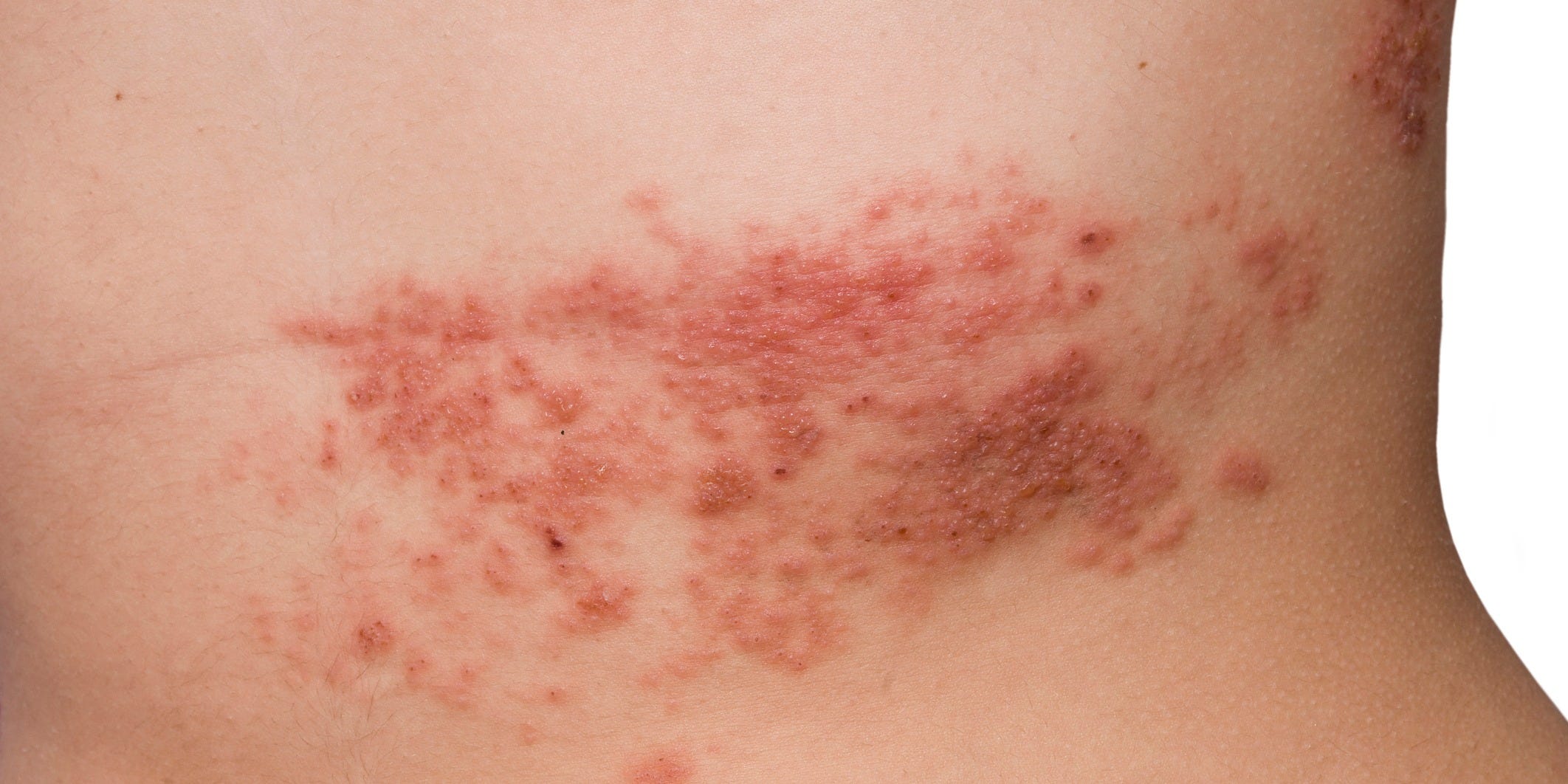- You can get shingles more than once, though it is rare.
- Though experts aren’t sure why, the virus can reactivate in your body a second or third time.
- People with a compromised immune system from old age, chemotherapy, HIV, or stress, are more likely to have a second outbreak of shingles.
- This article was medically reviewed by Scott Kaiser, MD, geriatrician, and Director of Geriatric Cognitive Health for Pacific Neuroscience Institute at Providence Saint John’s Health Center in Santa Monica, California.
- Visit Insider’s Health Reference library for more advice.
Shingles is a painful skin rash that affects about 1 in 3 Americans in their lifetime, primarily adults over 50. Though most people only get shingles once, there is a possibility that you can get it twice or even three times.
Here’s what you need to know about how you can get shingles more than once and what to do to prevent outbreaks.
You can only get shingles if you’ve had chickenpox
Shingles, also called herpes zoster, is a condition caused by the same virus as chickenpox. About 350,000 Americans get chickenpox each year, which causes an itchy rash that lasts about a week. But even after your symptoms stop, the virus never leaves your body.
Most viruses are killed by your immune system, but the chickenpox virus hibernates inside your nerve roots, which are cords that transmit pain and itching sensations to your skin. You don’t feel any symptoms while the virus is dormant because your immune system stops the microbes from multiplying.
But as you age, your immune system tends to gets weaker. Like a collapsed dam, this weakened defense can let in a flood of viral microbes to your system, causing the virus to spread from your nerve root into your skin, and ultimately leading to a shingles outbreak.
You can get shingles more than once
Most people will only have one outbreak of shingles in their lifetime, but "in rare cases, it can reactivate a second time and cause another episode of shingles," says Amesh A. Adalja, MD, an infectious disease physician and senior scholar at Johns Hopkins Center for Health Security.
A second or third bout of shingles happens the same way as a first outbreak - the virus reactivates and spreads to your skin. However, experts don't know exactly what causes the virus to deactivate and reactivate.
A study published in 2011 in the Mayo Clinic Proceedings found that among more than 1600 shingles patients, about 5% experienced a second outbreak. It is possible to have a third outbreak of shingles, but this happens very rarely.
Keep in mind that if you've already had shingles once, you can't get infected again from someone with shingles or chickenpox. The only way that you can have multiple bouts of shingles is through the reactivation of the dormant virus in your own body.
Some people are more likely to have a second outbreak
Experts don't know exactly why the shingles virus reactivates, Adalja says, but it likely has to do with a weakened immune system. Some factors that may weaken your immune system and contribute to shingles outbreaks include:
- Old age: Most people get shingles over the age of 50 and your risk gets higher as you get older.
- Sex: Women over the age of 50 are also more likely to have a second shingles outbreak than men of the same age.
- Stress: Your body reacts to emotional stress by releasing a hormone called cortisol, and this hormone can make your immune system less effective.
- Chemotherapy: The medications used to treat cancer can make your immune system weaker.
- HIV and AIDS: Autoimmune disorders like HIV and AIDS can put you at much higher risk for shingles.
- Organ or bone marrow transplants: Before you get a transplant, you often need to take medication to weaken your immune system, so that your body will not reject the new tissue.
What to do if you get shingles a second time
"Second recurrences of shingles are indistinguishable from first episodes," Adalja says.
If you do have a second shingles outbreak, the treatment will be the same as your original case, Adalja says.
To treat shingles, your doctor will prescribe antiviral medications such as acyclovir, valacyclovir or famciclovir. These medications can't cure shingles, but they can help clear up your symptoms.
How to avoid getting shingles more than once
The best way to avoid having a first or second outbreak of shingles is to get a shingles vaccine.
The latest vaccine, called Shingrix, prevents shingles and complications like post-herpetic neuralgia in 85% to 90% of people who get it. You will need to get 2 doses, 2 to 6 months apart.
If you have had shingles before, or if you are over 50 and have had chickenpox in the past, it is important to get the Shingrix vaccine to prevent future outbreaks.
The bottom line
Second or third outbreaks of shingles are relatively rare, but they are possible, particularly if you are in a high-risk group.
If you are concerned that you may be at risk for shingles, ask your doctor about getting a vaccine to protect yourself.
"Shingles is a disease that can be debilitating but is largely preventable through vaccination," Adalja says.
